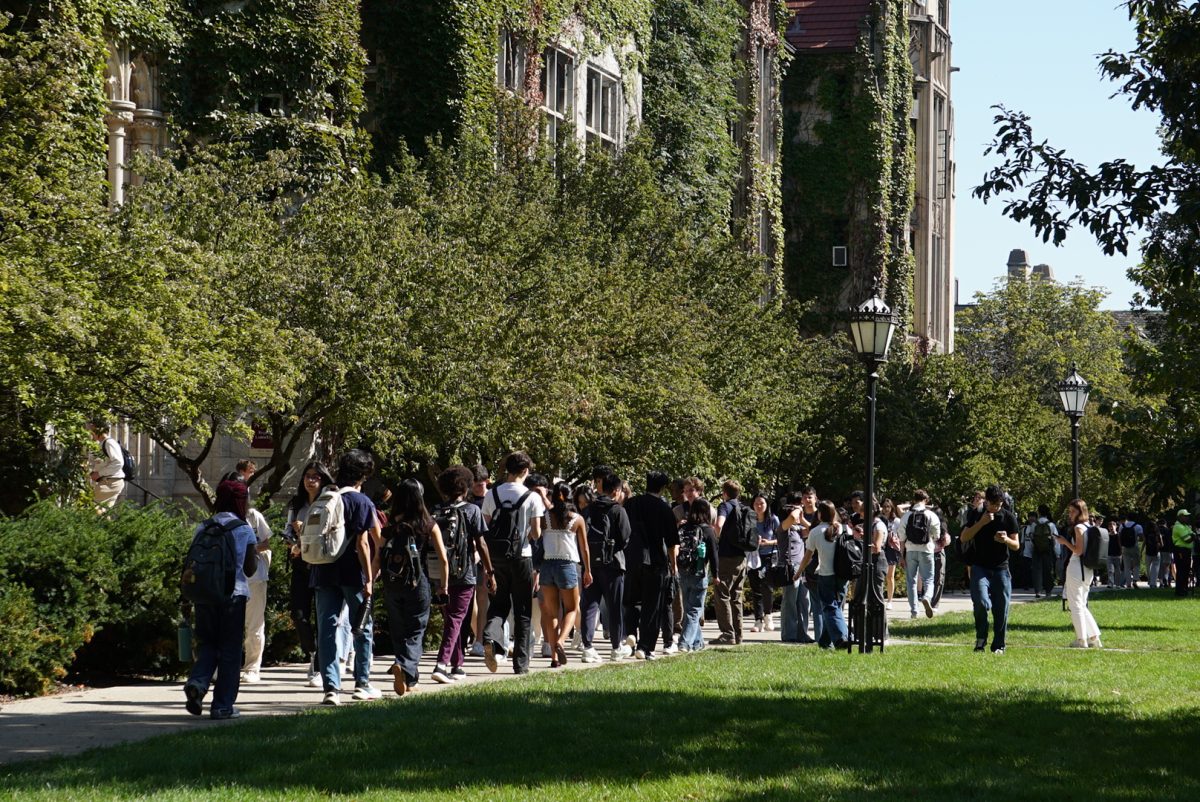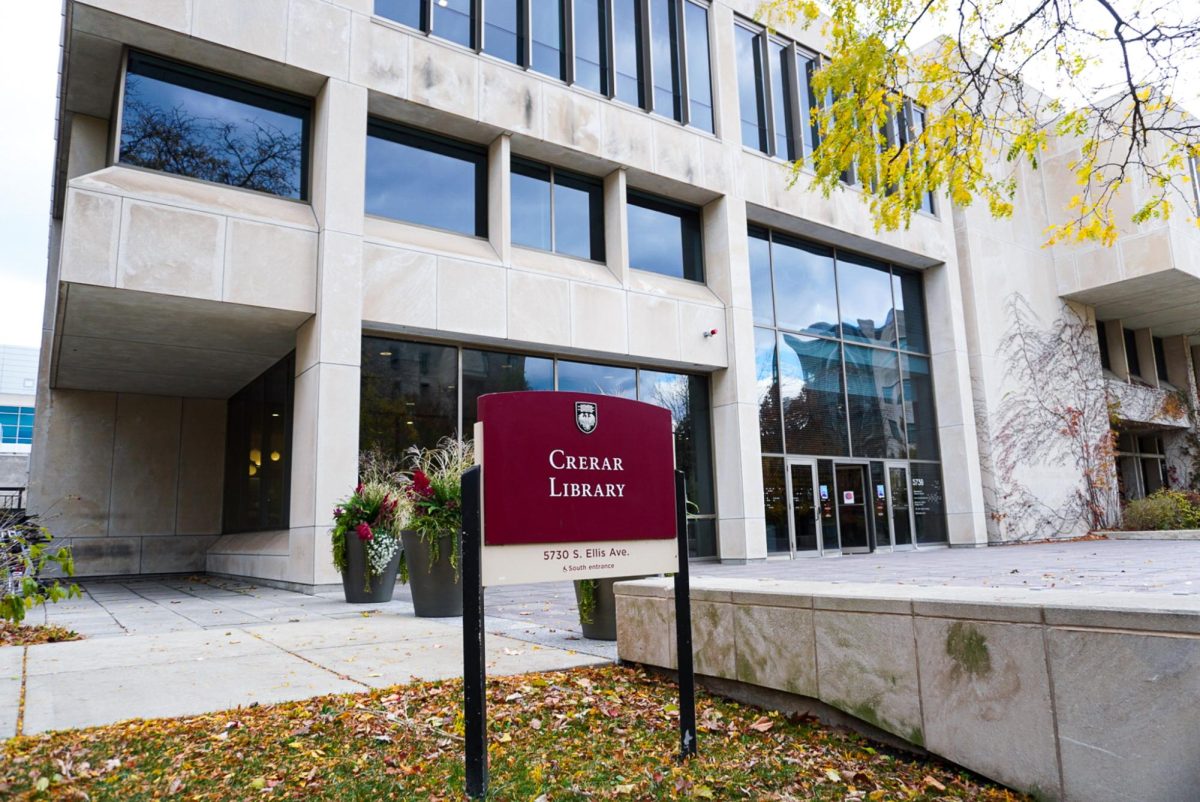November 8, 2004—PARIS—Before I left for Paris, an old friend of mine offered me this piece of advice: “Just remember, Europeans will usually believe you if you tell them you’re Canadian.” I laughed it off, but on November 2, when one of the girls in my “Theatrical Aesthetics of Comedy” class asked me if I was Italian, I was tempted to say yes. I didn’t, of course, because my mastery of the Italian language consists of little more than the names of pastas, pasta sauces, and the occasional dessert.
It was a good five hours before John Kerry would make the concession speech that broke the hearts of Democrats and Democratic supporters all over the world—not so much because of its content, but rather because Kerry, when it was too late, had finally given the kind of heart-felt address that we had spent months waiting for—but, despite the Kerry-Edwards button defiantly pinned on my winter coat, I knew that it was over. It wouldn’t be until the next day that the French newspapers would go to press with headlines such as “4 More Years: What Europe Feared,” but on the train ride home from the University, my professor was already asking me the question with which I will probably grapple until I am safely governed once again under a Clinton White House: “How did this happen?”
Having just finished Philip Roth’s newest politically charged novel, The Plot Against America, I was tempted to yell “FASCISM!” at the top of my lungs, but decided against it. Because the miserable and terrifying truth is that we cannot blame the Bush family fascism, the Cheney-Rummy politics of fear, or even the Swift Boat Veterans Against Kerry for what happened on November 2. No, what the United States is suffering from is a case of good old-fashioned American democracy—which is to say that in a fair and free election (“faulty” electronic voting machines notwithstanding), where more eligible citizens came out to the polls than ever before, George W. Bush was (re-)elected President of the United States by a majority of 3 million in the popular vote and twenty in the electoral college.
Yes, Kerry was right to remind us that each morning we wake up and we are still Americans, but as my father retorted “that’s the problem!” The problem is that as Americans, we do not conceive of ourselves in terms of our unity and our national identity—we see each individual, each moral code, each red state, and each blue state as equally important parts of the great national melting pot and maybe this is why the French don’t understand us. As an American, I am one of the children of a nation of immigrants, where I would describe myself as a woman and a Jew before I would say I am American. In France, you are French before you are anything else—sure you can be rich, poor, Muslim, Christian, a midget or a cat but above all you are French.
This unbending separation between the individual and the nation is directly related to the separation between church and state in France. In mid-September, my oral practicum teacher had us working on a series of articles concerning the new secularization laws in France, which prohibit any “ostentatious” religious insignia in the French public schools. She went on to explain how this law protected the students’ safety and status as French citizens, by removing from the pubic space of classrooms anything that would distinguish one student from another as anything other than simply French, just like anybody else. “Frankly,” she told us, “I don’t want to see a head scarf or a star of David it would make me nervous to know what someone’s religion is before I have the chance to get to know the person. I don’t want to know how much money someone has, or where they come from, because none of that is important to me.” It’s a nice thought, but I did feel slightly more awkward when I had to let her know that I wouldn’t be in class on Thursday, as I would be observing the Jewish High Holidays.
However oppressive it may seem, it is because of this same I-am-French-and-the-French-can-do-no-wrong French-ness that no one really gives a flip about the extra-marital sex lives of French politicians, because in separating the concepts of the individual and the state the French do not feel obligated to look to their political leaders for spiritual guidance. If a French politician wants a blowjob, nobody bats an eyelash. But in the United States, the idea of any real separation between church and state is such a joke that we hold our President to inhuman standards of behavior, and we elect as our leader a man who bases his domestic civil policies on his personal religious convictions. The evangelical morals of the red states now reign free in the Congress, the Supreme Court, and the White House, and while 51 percent of the popular vote might like it that way, I can’t imagine anything more un-American than this imposition on my individual religious and moral choices.
I’m not saying that the French way is the best way. Essentially, the French and American conceptions of what it means to be a citizen of the nation are two opposing extremes of the most basic theme in political philosophy and neither one of them falls anywhere near the happy medium of Aristotle. So before I stop shaving my armpits and start running around singing “My Country ‘Tis of Brie,” I have to remind myself that I’m young, I vote, and there is always the hope that the Cheney-bot will have a mechanical malfunction in an airport metal detector, Dubya’s fake Texas accent will be exposed when he is caught lip-synching on SNL, and the entire Northeast will secede from the Union to join the United States of Canada.






